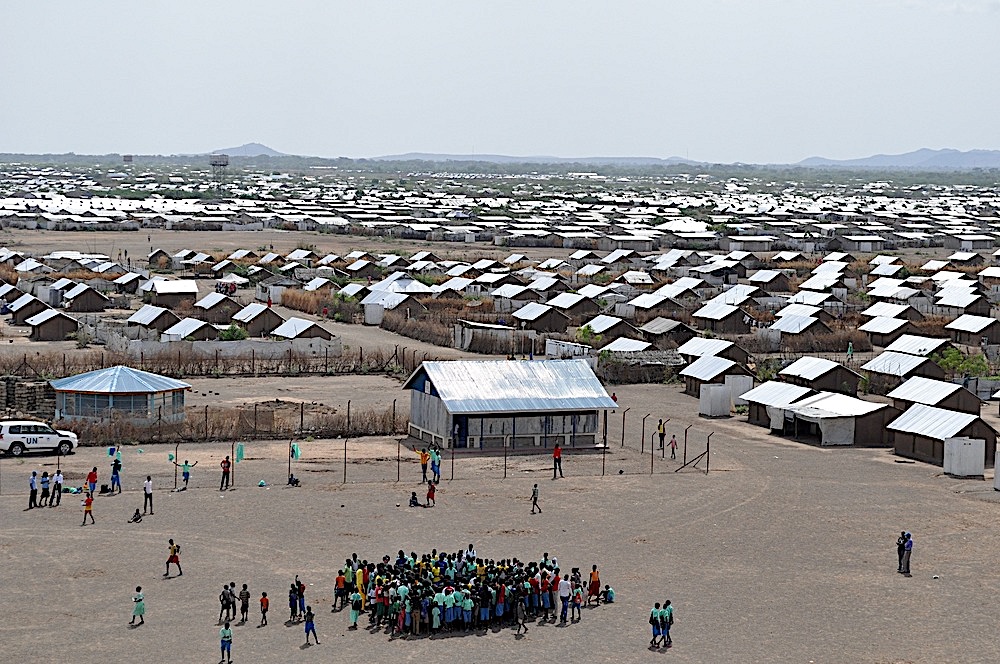KENYA: JRS Reiterates Bishops Appeal in Cautioning Kenya Government on Closing Refugee Camps

Refugee Camp; Credit Courtesy photo
Sr. Jecinter Antoinette Okoth, FSSA
Officials of Jesuits Refugee Service (JRS), an international Catholic organization that advocates on behalf of refugees, have asked the government of Kenya who intends to close Dadaab and Kakuma refugee camps to be cautious concerning their plan especially during this particular time of uncertainty.
In their statement published Thursday, April 15, the JRS leadership has called on government to “exert maximum forethought and caution in this particular time of uncertainty, wisely considering the legal obligations imposed by international law and the Organization of African Unity (OAU) Convention.”
The legal obligations by OAU, they say, includes “the principle of non-refoulement,” which applies to all migrants at all times, irrespective of migration status and “guarantees that no one should be returned to a country where they would face torture, cruel, inhuman or degrading treatment or punishment and other irreparable harm.”
The principle “prohibits States from transferring or removing individuals from their jurisdiction or effective control when there are substantial grounds for believing that the person would be at risk of irreparable harm upon return, including persecution, torture, ill treatment or other serious human rights violations.”
Additionally, other imposed obligations by the OAU convention includes, “the practical limitations of closing large-scale refugee camps hosting more than 410,000 people and the moral obligation to take care of the most vulnerable in society and to pursue the common good.”
In their Thursday statement, JRS which is a member of the executive committee of Kenya Conference of Catholics Bishops (KCCB) on Refugees, Migrants and Seafarers, reaffirms the appeal by the bishops that government should shelve the proposed idea on closure of refugee camps.
The bishops in their collective statement dated Friday, April 9, noted that the two camps Dadaab and Kakuma host more than 410,000 people including women, children and the elderly especially the people whose lives have been disrupted by various reasons including “mismanagement of resources, bad or lack of good governance structures, immature politics, effects of climate change and generally those who have gone through various types of human rights abuses.”
Meanwhile, the JRS have in their statement recognized and appreciated the efforts and commitment shown by Government of Kenya “to generously welcome and protect refugees and displaced people over the years, playing a lead role within the region and assuring a safe space to thousands of families seeking asylum.”
According to JRS, the situation in Kenya for forcibly displaced people from Somalia, South Sudan, the Great Lakes and more recently from the Tigray region in Ethiopia “is becoming worse, due to protracted and emerging conflicts and the Covid-19 pandemic.”
The organization that has worked in Kenya for the last 27 years, continues to support government and its stakeholders “by providing basic services and support to refugees and host communities in Nairobi and in Kakuma refugee camp.”
“At this challenging time, we continue to ensure access to education for children with disabilities, higher education for refugees, protection to women survivors of SGBV (Sexual and Gender-Based Violence) and children at risk, life-skills training, livelihoods, and mental health and psychosocial support, by accompanying, serving and advocating for the cause of refugees,” reads an excerpt of the published statement.
JRS is also a member of the Core Humanitarian Standards (CHS) Alliance, a global alliance of humanitarian and development organizations committed to strengthening accountability and delivering higher quality and more effective aid to the people they serve.


